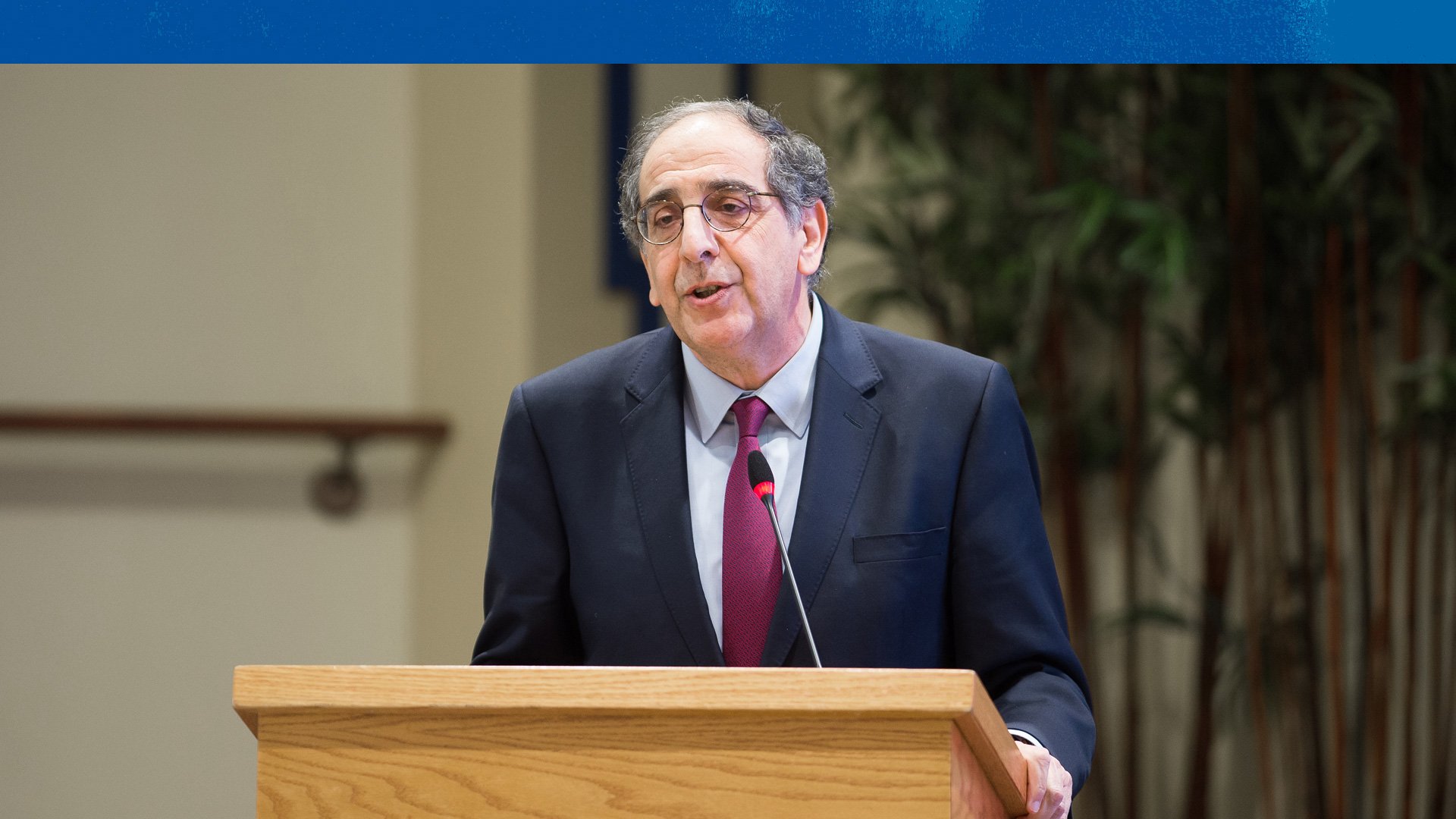For the First Time, Again
José-Alain Sahel, Distinguished Professor and chair of the University of Pittsburgh Department of Ophthalmology
“For the first time”—that phrase is music to the ears of medical researchers whose goal is to reverse once-inevitable health impairments. In 2021, those words were used to describe another Pitt breakthrough: the creation of a clinical trial that combines a biotherapy with special goggles to observe the first clinical evidence for vision restoration with optogenetics. As press announcements stated, “For the First Time, Optogenetic Therapy Partially Restores Patient’s Vision.”
“The eye is a very complex system that allows our vision to adapt to different levels of light,” says José-Alain Sahel, Distinguished Professor and chair of the University of Pittsburgh Department of Ophthalmology. “But complex systems are very fragile, so when vision disappears, there are few treatments left aside from using prosthetics or reactivating remaining cells in the retina.”
Sahel led the trial with researchers in Paris, Vienna and Pittsburgh that successfully reactivated those remaining cells and partially restored the vision of a patient with retinitis pigmentosa—a progressive neurodegenerative disease that destroys light-sensitive cells in the retina and leads to complete blindness. They used optogenetic therapy, which manipulates proteins and cells with light by using special goggles equipped with a camera that projects light pulses onto the retina—like a movie projector onto a theater screen. The results were remarkable. While wearing the goggles, the patient was able to locate, identify and count different objects using the treated eye.
This isn’t the first innovation credited to Sahel and his worldwide team. Coinventor on more than 40 patents, Sahel is one of the world’s top experts in retinal diseases and vision restoration research and is now supported by a five-year collaboration with the U.S. Food and Drug Administration’s Center for Devices and Radiological Health focused on collaborative research, public outreach, extension activities, cooperative international initiatives, disciplinary training and exchange of scientists and staff.
Sahel is committed to creating impact through his research and has formed several startup companies, including Avista Therapeutics, which he cofounded with Assistant Professor of Ophthalmology Leah Byrne. The company recently formed a partnership with Roche to develop gene therapy vectors for the eyes.
Driven by his humanitarian passion, Sahel says, “Patients’ voices will nurture our projects and define the successes we all want to deliver.”
“Patients’ voices will nurture our projects and define the successes we all want to deliver.”

